Is Kenya having a mid-life crisis?
- Published
- comments

Kenya turns 50 on Thursday - and I'm reliably informed that this an age which is truly a turning point in life.
Memory, vision, hearing, movement - speed, flexibility and agility - are all faced with challenges as the years creak by. So is Kenya at 50 acting her age?

Memory:

In 1998, 224 people died when al-Qaeda bombed the US embassy in Nairobi
As middle age kicks in it is common for people to forget things: You misplace your keys; you forget the title of the film you watched last month.
Kenya, too, is becoming increasingly forgetful.
Before the terrible attack at the Westgate shopping mall in Nairobi last September, in which scores of innocent lives were lost, Kenya had faced a similar, more deadly terrorist attack which targeted the US embassy in the heart of the city.
But all the lessons of the 1998 bombing were quickly forgotten - until Westgate happened.

Vision:
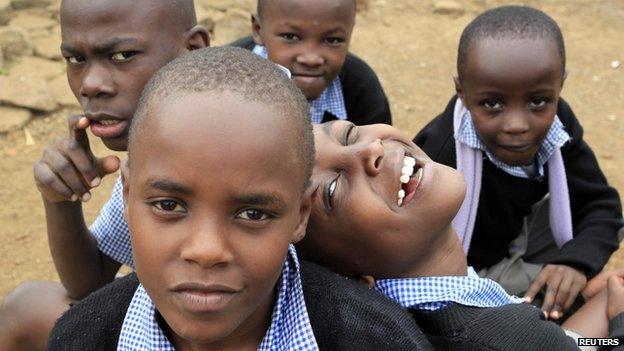
80% of Kenyans are under 35 years old
Changes in age lead to changes in vision. As we get older, we require glasses or stronger lenses for reading or driving.
Kenya is almost legally blind.
And as Kenya itself grows older, it has failed to see that its population is growing younger.
Eighty percent of Kenyans are under 35 years old and each year, one million Kenyans jump out of their mothers' womb screaming their heads off, for education, food, better health and jobs.
Yet, despite their large numbers, it is the young who are hardest hit by lack of jobs.

Kenya's population is growing rapidly and has more than quadrupled in the past 50 years. About 42% of the population is below 15 years of age. Child mortality rates have fallen - although Unicef says figures vary, from 54 per 1,000 live births in Central Province to 206 per 1,000 in Nyanza Province.
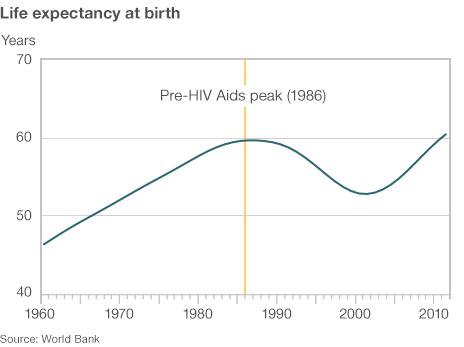
Life expectancy in Kenya rose until the late 1980s, when the HIV/Aids virus started to spread. It is still reported to be the leading cause of death in the country. According to Unicef, about 1.3m people are currently living with HIV in Kenya, but latest figures suggest prevalence is dropping.

Kenya has the largest GDP in East and Central Africa. Its main exports are tea, coffee, horticultural products and petroleum products. The World Bank says Kenya needs to adopt more modern farming methods. About 75% of the population still live in rural areas and rely on agriculture for most of their income.
According to a UN Programme for Development (UNDP) report, external released earlier this year, youth unemployment rates are several times higher than among adults and particularly in cities and among females.
Kenya has recently been to the optician to acquire new lenses that will focus better on its children, through new government initiatives that aim to create employment for young people.
However, Kenya's blurred vision means the country is sitting on a demographic time bomb.

Hearing:
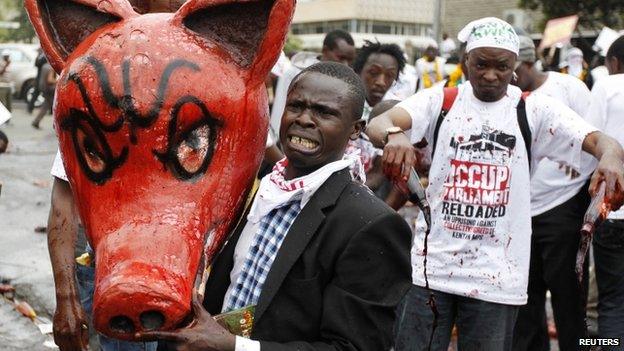
There have been angry demonstrations about MPs' salaries this year
If you have ever had the experience of shouting into your grandma's ear because of her failing hearing, then you will understand the frustrations of Kenyans.
As the years catch up with Kenya, its ears are rapidly failing.
Before the elections in March, the "wananchi", or ordinary people, took to the streets and shouted down their members of parliament who were attempting to raid public coffers and award themselves lucrative pay hikes and astonishing retirement packages.
Fearing reprisals at the ballot box, the politicians reluctantly backed down.
But with Kenya now increasingly deaf, the MPs are once more analysing their payslips and knocking on the treasury door.
They just did not hear what the wananchi told them.

Movement:
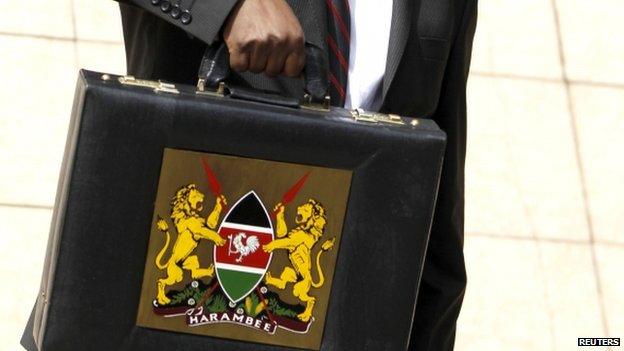
Disagreements between politicians can paralyse government business
Age can be cruel: the knees that held you upright now begin to call for a commercial break in the middle of an exciting journey.
They do not even have the courtesy of letting you sit down quietly - they will creak, moan and sigh loudly.
The six-pack tummy of youth turns into a beautifully rounded one-pack balloon that is finding the ground more exciting to touch than staying firmly in place.
Kenya has stepped into all these challenges of age.
As the knees, which guide movement and symbolise all sections of government, decide with one accord to take the country forward in a particular direction, disharmony sets in gradually and the body is thrown into rigor mortis.
The left knee, which is perhaps the senate, twists out of shape and decides to walk in the opposite direction.
The right knee, which symbolises parliament, sulks and decides to sit down.
Meanwhile, the spine, which represents the county governors, suffers a slipped disc as it contorts itself out of shape trying to reach for more money from central government.
The rest of the Kenyan frame has little choice but sit still, breathless.
No-one goes anywhere.
When the wananchi question this lack of agility, direction and purpose, ageing Kenya has a ready answer: "If God wanted me to touch my toes, he'd have put them on my knees!"

Mid-life crisis:
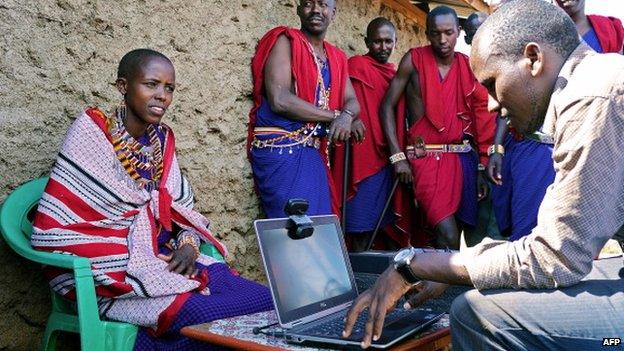
Kenya envisages a digital future
So you can see Kenya has aged, but there is hope for the country at 50.
Just like the men and women who have renewed themselves with age, found new hobbies and new callings in their mature years, Kenya is trying to make the most of its mid-life crisis.
It has a 2030 vision, external to propel it into middle-income status by 2030.
High-speed commuter trains - the equivalent of a flashy sports car for the man chasing his youth - will replace the chaotic and inefficient public transport system of today.
A fully digitised society, complete with laptops in schools, an electronic-government, and internet-enabled rural villages will complement a new oil-driven economy.
With improved eyesight, a sharper sense of hearing, greased knees and joints, as well as memory-enhancing exercises, I feel confident that Kenya, with its dyed hair, will be unrecognisable when it sits amongst the world's leading economies in the year xyz.
For now in advance of the big day, let me say, "Happy birthday Kenya!"
Even without teeth, you are still a great companion to live with at 50.
- Published13 December 2013
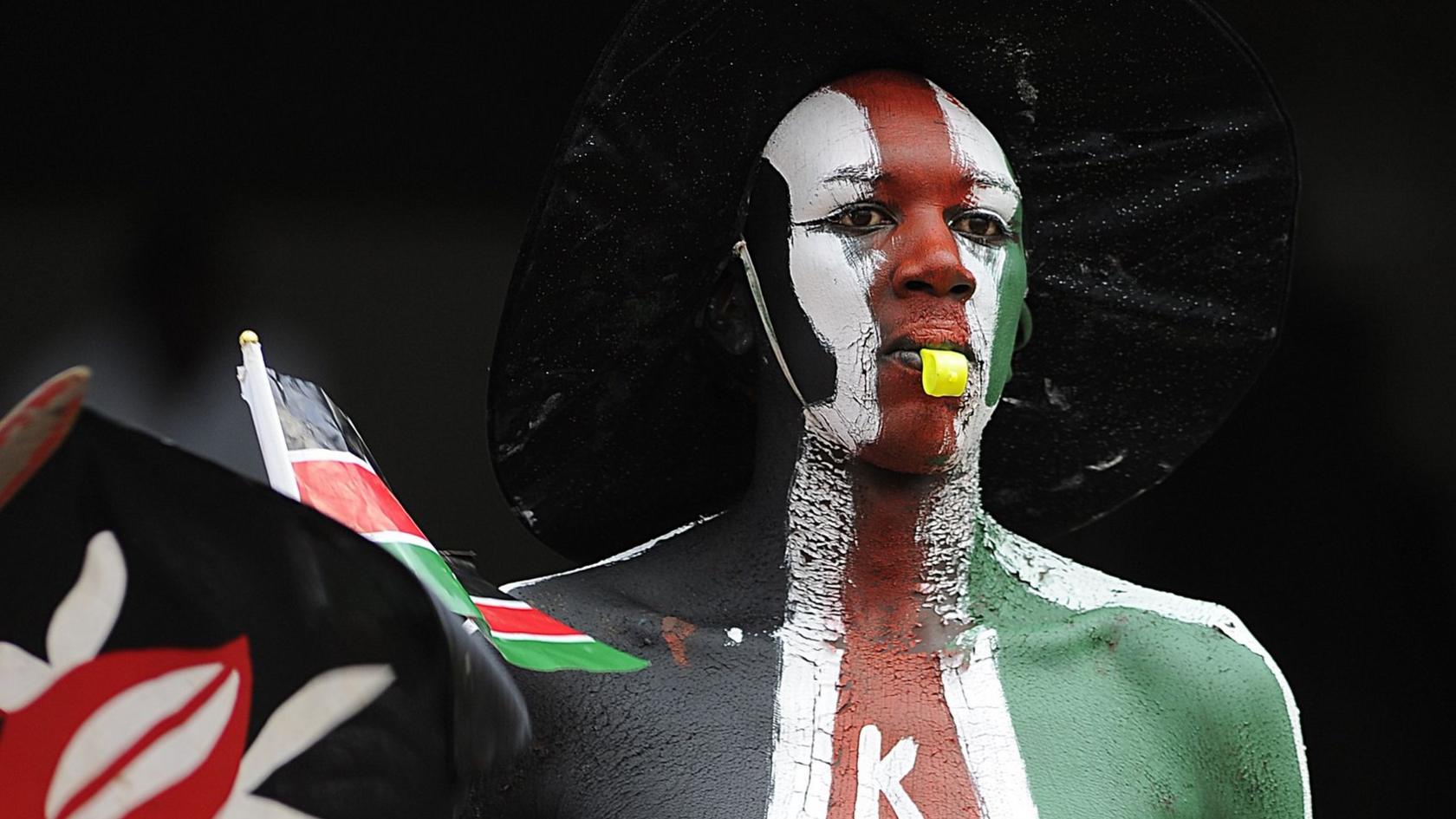
- Published4 July 2023
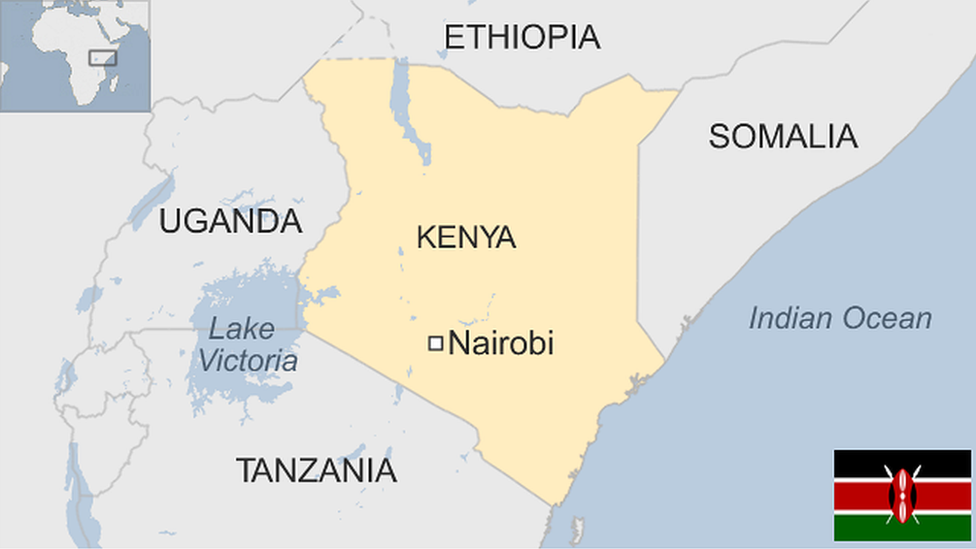
- Published18 October 2012
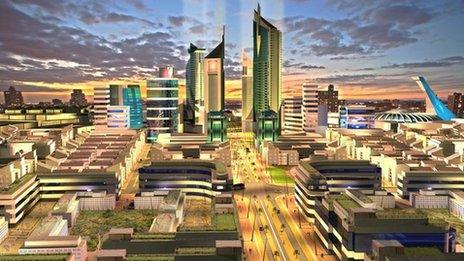
- Published23 January 2013

- Published27 November 2017
